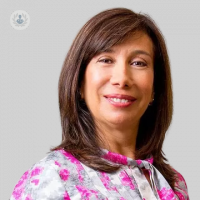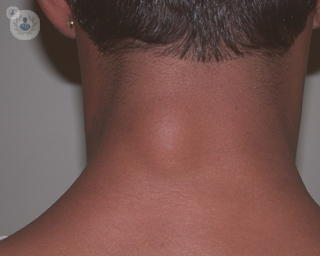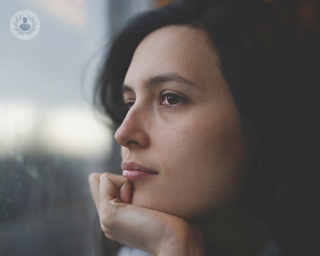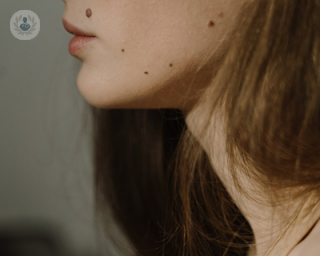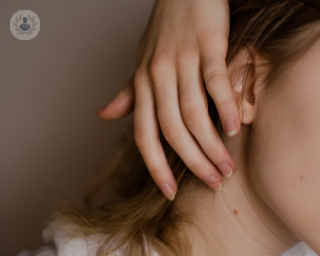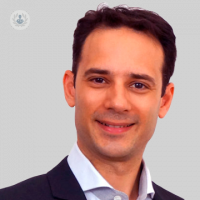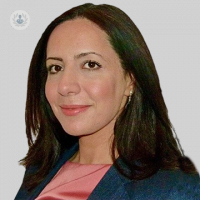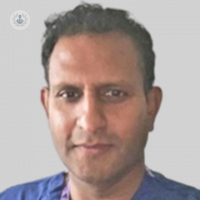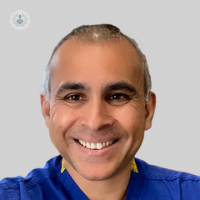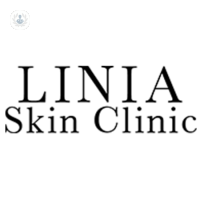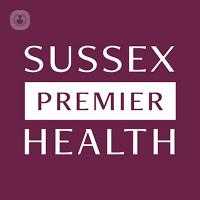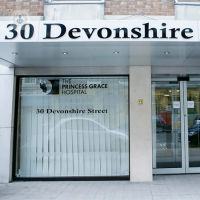Skin lesions
Dr Emilia Duarte Williamson - Dermatology
Created on: 11-02-2018
Updated on: 05-09-2023
Edited by: Aoife Maguire
How is dermatology defined?
Dermatology is the branch of medicine dedicated to skin, nails, and hair diseases. It encompasses more than 3,000 diseases, and thus, both the diagnosis and treatment can be complex. It is roughly divided into different categories:
1) Inflammatory skin diseases, for example, psoriasis, eczema, autoimmune diseases like lupus, morphea, Bullous diseases (pemphigus, bullous pemphigoides), and skin drug reactions.
2) Infectious diseases such as impetigo, scarlatine fever, viral warts, chicken pox, herpes simpex, etc
3) Skin/skin structures proliferation, or skin lesions. These can also be divided on benign or malignant, congenital or acquired, for example basal cell carcinoma and malignant melanoma as an example of malignant cancers, naevus or moles and hamangiomas as benign skin lesions.
What are skin lesions?
Skin lesions are abnormal lumps, bumps, ulcers, sores or coloured areas on the skin. There are two different categories: primary and secondary skin lesions. Primary skin lesions are present from birth or are acquired during a person’s lifetime. Secondary skin lesions appear as a result of irritated primary skin lesions. They occur if someone were to, for example, scratch a mole until it bleeds. Many different conditions such as acne, herpes simplex, allergic eczema and impetigo can cause a skin lesion.

What causes skin lesions?
The most common cause of a skin lesion is an infection on or in the skin, such as a wart or the herpes simplex virus that causes cold sores and genital herpes. Some skin lesions are hereditary, such as moles and freckles. Other causes of a skin lesion can be an allergic reaction or conditions such as diabetes, which causes skin sensitivity.
Underlying medical conditions such as cancer or kidney disease could also be the root of the skin lesion or they may develop as a side effect of medication or a medical treatment such as chemotherapy. Skin lesions may also develop due to injuries such as sunburn or wounds.
What are the types of primary skin lesions?
The most common types are:
What are the types of secondary skin lesions?
The most common types of secondary skin lesions are:
- crust
- ulcer
- scale
- scar
- skin atrophy
How are skin lesions diagnosed?
For the diagnosis of skin lesions, it is important to find out the history of the lesion, how long the lesion has been present, whether or not it is causing any symptoms, and whether or not it has been changing. A full skin examination is important in most patients, and a dermoscopy with a 10-fold magnification device will be performed. Sometimes, when there is no clarity about the diagnosis, a skin biopsy may be necessary.
If the clinical diagnosis is clear and the lesion is thought to be malignant, an excision of the lesion will be indicated, or when the patient has cosmetic corcerns that sometimes can affect him/her psychologically, these skin lesions can be excised or surgically eliminated. It is always recommended to send all the lesions removed for biopsy.
One also needs to consider that the removal of these lesions will leave scars and that sometimes scars can cause keloids, raised irregular scars that grow over and above the surgical scars. A doctor will examine the skin lesion and ask if there any other symptoms. They may take samples of the skin, perform a biopsy, or take a swab of the lesion, which is to be sent for analysis in a lab.
Are there ways to prevent skin lesions developing?
There are some steps you can take to try to prevent the spread of skin diseases. Maintaining hygiene is key to the prevention of skin lesions. Hand washing is key. Ensure that your hands are washed thoroughly, washing with warm soapy water for 20 seconds and rinsing well. An alternative to washing hands with warm soapy water is using an alcohol-based hand sanitiser.
Maintaining hygiene in public places, such as at the gym, can reduce the likelihood of skin lesions spreading. Some steps include:
- Washing hands after using shared equipment, such as barbells.
- Placing a towel on shared surfaces such as exercise equipment. The towel will act as a barrier between the skin and threatening bacteria.
- If playing sport provokes contact with another player’s potentially infectious wound, then washing hands immediately could prevent the risk of potential infection.
- Avoiding touching the nose, eyes or mouth to prevent spreading infection.
- Cover non-contagious skin lesions such as eczema.
- Avoid picking or squeezing skin sores.
- Don’t share things with others which touch the lips or enters the mouth, such as drinks or cigarettes.
Are skin lesions and skin sores the same thing?
Skin sores are used to refer to certain types of skin lesions, such as ulcers or blisters. The terms ‘skin lesion’ and ‘skin sore’ are often used interchangeably.
What are malignant skin lesions?
Malignant skin lesions are ones which are cancerous, resulting in skin cancer.
Signs that skin lesions are cancerous are as follows:
- If an existing growth or mole changes.
- There is new growth on the skin.
- There is a wound which won’t heal.
- If the lesion is small, with an irregular border and with parts which appear red, white, pink, blue or blue-black.
Lesions on your palms, soles of your feet, finger tips or toes which are dark may be cancerous. Additionally, if the mucous membranes which line your mouth, nose, anus appear dark, this could be a sign that the lesions are malignant.

How are skin lesions treated?
Treatment of skin lesions is determined by the underlying cause. Topical medications can help treat the inflammation and can stop pain, itching or burning. Some skin lesions, which may become infected, can be drained for relief. There are also home remedies that are recommended, such as using lotions for relief from itching and absorbent powders if the skin lesions rub against clothes.
Benign (non-cancerous) skin lesions can be treated in various ways. Medications to treat them include retinoids, corticosteroids, or antimicrobial agents.
Benign skin lesions may also be treated through photodynamic therapy, cryotherapy or surgical removal. Suspicious moles or lesions that may be precancerous must be removed surgically. Some benign skin lesions may appear cancerous, and therefore, the only way to ensure if the lesion is cancerous or non-cancerous is to remove and examine it.
How are skin lesions removed?
Lesions can be cut out of the skin, frozen off or removed using heat, laser, or light therapy. If a patient has a surgical procedure, it can take up to three weeks for the wound to heal. It takes a few weeks for a lesion to scab and comes off after having cryotherapy.
There are several methods to remove skin lesions. These are as follows:
- complete excision (excision biopsy)
- partial removal (shave biopsy)
- heat treatment (electrocautery)
- laser therapy
- curettage
- cryotherapy
- photodynamic therapy
At home care following treatment
Your doctor will recommend follow up after care for wounds following treatment. The following care instructions are recommended:
- Putting a bandage on the wound and ensuring it remains dry for the first day following treatment.
- Following the first day, clean the wound with clean water two times a day.
- Putting a thin layer of petroleum jelly, such as Vaseline on the wound, and a non-stick bandage.
- Applying more petroleum jelly and replacing the bandage if necessary
- If a scab forms, do not pull it off and allow it to fall off on its own. Wounds heal faster if no scab forms.
- If the wound begins to bleed, put direct pressure on it with a clean cloth until the bleeding stops.
When should you seek a medical professional?
If over-the-counter treatments do not help with conditions such as acne, psoriasis, or eczema, then an appointment with a specialist is recommended. They may prescribe other medications that are stronger. For infections such as impetigo or herpes, there are no over-the-counter medications and an appointment with a doctor should be made.
If new moles, irregular freckles, or changes in moles are noticed, contact a doctor and make an appointment so they can screen for skin cancer. Check the skin lesion diagnostic table with the Primary Care Dermatology Society here.
If in doubt, always ask a doctor. If your skin lesions appear familiar to lesions caused by MRSA or cellulitis, it is essential that you seek medical care.
